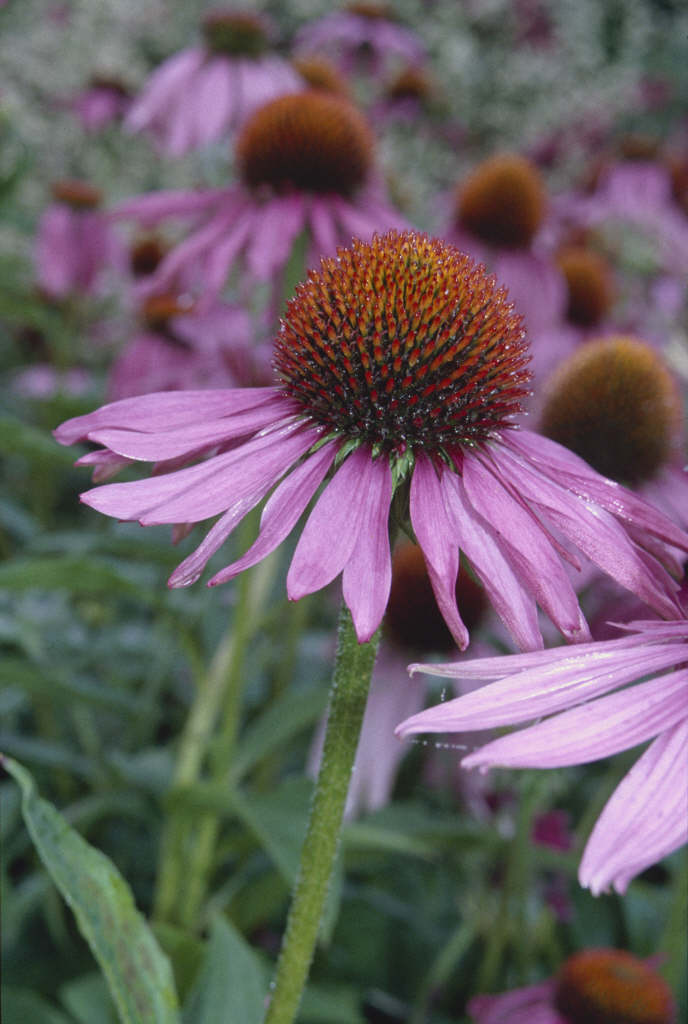Echinacea purpurea 'Magnus'
purple coneflower 'Magnus'
Vigorous perennial coneflower about 1m tall, with narrowly oval rich green leaves, and daisy-like flowerheads to 10cm wide, with broad, overlapping deep reddish-pink horizontal ray-florets surrounding an orange-brown central cone, flowering from midsummer to autumn
Size
Ultimate height
0.5–1 metresTime to ultimate height
2–5 yearsUltimate spread
0.1–0.5 metresGrowing conditions
Moisture
Well–drainedpH
Acid, Alkaline, NeutralColour & scent
| Stem | Flower | Foliage | Fruit | |
| Spring | Green | |||
|---|---|---|---|---|
| Summer | Pink | Green | ||
| Autumn | Pink | Green | ||
| Winter |
Position
- Full sun
Aspect
West–facing or South–facing
Exposure
Exposed or Sheltered Hardiness
H5Botanical details
- Family
- Asteraceae
- Native to GB / Ireland
- No
- Foliage
- Deciduous
- Habit
- Clump forming
- Genus
Echinacea are erect, clump-forming rhizomatous perennials with simple or pinnately lobed leaves and solitary, long-stalked daisies with prominent conical central disks and often drooping ray florets; attractive to butterflies
- Name status
Accepted
How to grow
Cultivation
Grow in well-drained, humus-rich soil ideally in full sun with protection from excessive winter wet. See echinacea cultivation
Propagation
Propagate by root cuttings taken in late autumn or early spring. Division may be tried in spring or autumn but they resent disturbance
Suggested planting locations and garden types
- Cottage and informal garden
- City and courtyard gardens
- Coastal
- Wildlife gardens
- Patio and container plants
- Prairie planting
- Wildflower meadow
- Flower borders and beds
- Cut flowers
Pruning
Cutting back stems as the blooms fade may encourage further flowering; or seedheads may be kept on the plant for winter interest
Pests
Generally pest-free but young growth may be susceptible to slugs
Diseases
Generally disease-free
Get involved
The Royal Horticultural Society is the UK’s leading gardening charity. We aim to enrich everyone’s life through plants, and make the UK a greener and more beautiful place.
